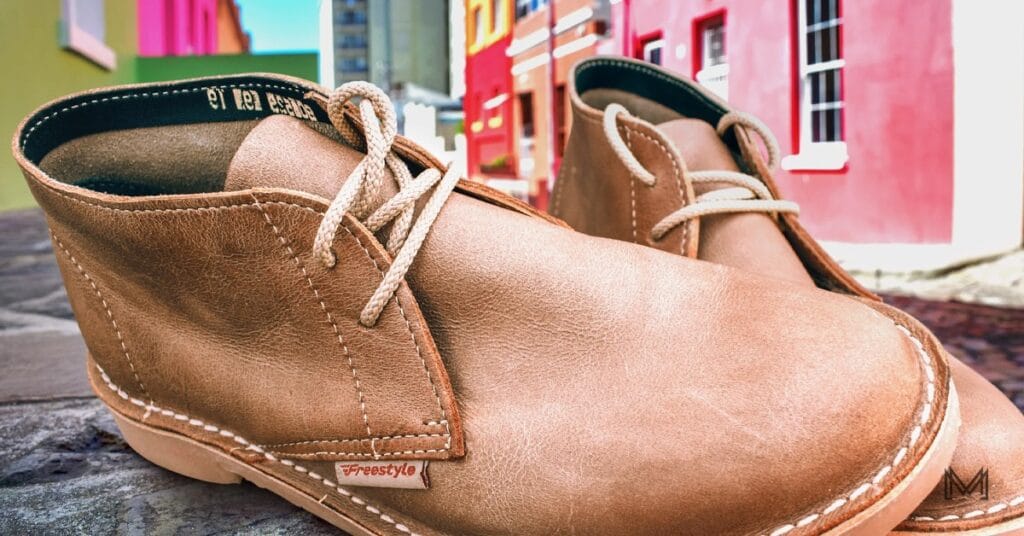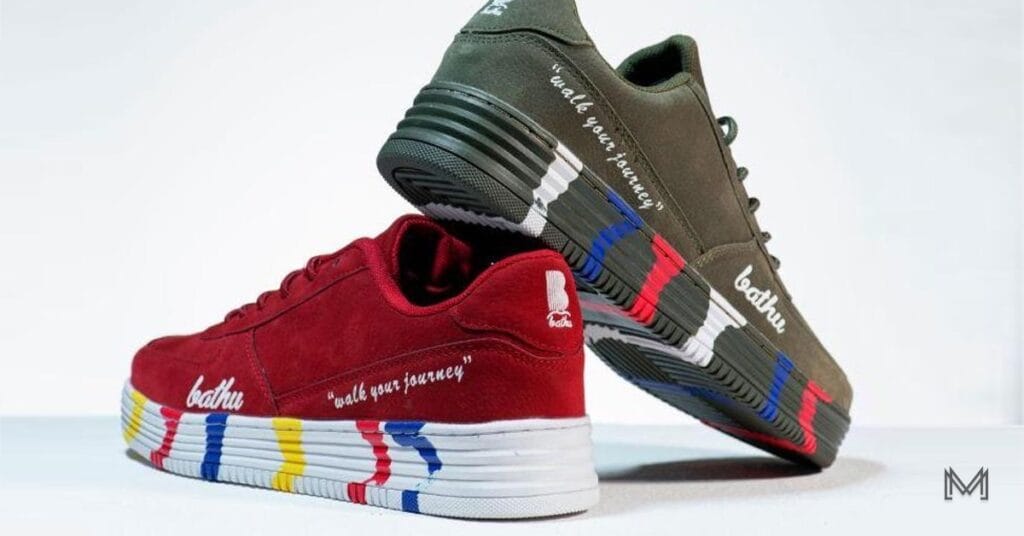Kicking Off Your Own Footwear Empire: 10 Guides to Start a Footwear Business in South Africa
The footwear market in South Africa is growing, and local brands and business owners are taking the lead. People purchase more locally made shoes because they are proud of their country and want to support local businesses. This is a fantastic chance for people who want to start their own business. It might be scary to start a footwear business in South Africa, but it’s a fantastic idea that has a lot of promise. This guide will give you the information and tools you need to make your dreams of making footwear come true.
Building the Base: Making a Plan for Your Footwear Business Model
You need a strong plan before you jump into the exciting world of designing and making shoes. This plan serves as a roadmap for success, providing guidance and direction.
- Define your target market: Who are you making things for? How much money do they have, what do they want, and what do they need? Getting to know your ideal customers will help you create a brand personality and make shoes that appeal to them.
- What makes your brand different from others? We refer to this as a unique selling proposition (USP). This could be your own style of design, eco-friendly ways of making shoes, a focus on certain types of footwears (like veggie or orthopaedic footwears), or your promise to support local artists.
- Pricing Strategy: Choose how much you want to charge for your footwears. You should take into account things like how much it costs to make it, how much your target market can afford, and how much other companies charge. Set your prices higher to make your brand appear more expensive, or lower to attract more customers.
- Sales Channels: Are you going to sell your goods online, in a store, or both? Check out a variety of venues, such as e-commerce sites, social media markets, pop-up shops, and partnerships with stores.
- Plan your marketing: How will you get to the people you want to reach? Social media marketing, working with influencers, digital ads, public relations, and maybe even traditional media should all be part of your marketing plan.

Getting Legal: Licenses, Business Registration, and Intellectual Property
It’s essential to make sure that your business is legal before you start selling shoes.
- Business Registration: The Companies and Intellectual Property Commission (CIPC) is where you should go to register your business. Pick the type of business organisation that works best for you: a single proprietorship, a partnership, or a private company. For legal and tax reasons, this step is necessary.
- Licenses and Permits: Depending on what you do for a living, you may need to obtain government licenses and permits. These could include a business license, a health pass (if you’re working with materials that will contact people’s skin), and maybe even a manufacturing license if you’re making shoes in your own factory.
- Protecting your intellectual property: Keep your brand’s name and ideas safe. Create a title for your brand name and image. You may want to patent your unique shoe designs. This will make it harder for other people to steal your thoughts.
Sourcing Your Footwear Business: From Suppliers to Manufacturers
The next step in starting a business is to find the right people to work with on production.
- Suppliers: You may need to find different materials depending on your idea and production plan. You could include leather, materials, shoes, laces, buckles, and other parts in your inventory. Find sellers who have a good reputation and sell quality items at reasonable prices.
- Manufacturers: There are several methods for making shoes.
- Making Shoes Abroad: Because of the lower prices of making shoes in places like China, Vietnam, and India, many brands choose to do this. This could be a cheap choice, but it could also mean longer lead times and trouble with quality control.
- Local makers: You may want to collaborate with South African makers. Not only does this help local companies, but it also gives people more power over quality and production. Various workshops manufacture different types of shoes, such as leather shoes and trainers.
- The Do It Yourself Method: If you have the skills and materials to do so, you can open your own factory. This gives you full power, but it costs a lot of money to buy the machines and tools you need.

Setting Up Footwear Business: Essential Accounts and Financial Management
Without a strong cash base, no business can grow.
- If you want to keep your business funds separate from your personal money, open a separate business bank account.
- Accounting System: Pick an accounting system that works for you. You can use simple spreadsheet software or buy financial software with more advanced features.
- Merchandise management: Establish a system to monitor your inventory levels. Making sure you have enough stock to meet demand and avoid overstocking or stock shortages is very important.
- Calculate the cost of making each pair of shoes. Think about how much the supplies, labor, production, and other costs add up to. This will help you determine a profit price.
Creating Your Showroom: Store Location and Layout
The right location and style for your store are crucial to attracting customers.
- Location, Location, Location: Pick a spot that gets a lot of foot traffic, is simple to get to, and is well visible. Think about how close your store is to your target market and related shops.
- To make your goods stand out, plan the store in a way that is both welcoming and useful. Consider things like lights, display racks, seats, and a fitting room. A store that looks appealing makes the shopping experience better for customers.
Building Your Team: Hiring and Training
As your business grows, you might need to expand your team.
- Determine the roles that require filling in the hiring process. Some examples are salespeople, marketing experts, social media managers, production helpers, and customer service reps.
- Teaching: Spend money on teaching your team about your products, business ideals, and customer service standards. When workers are well-trained, they can make the customer experience much better.
Marketing Your Footwear Brand: Connecting with Your Audience
In this modern world, you need to have a strong online profile to be successful.
- Social Media: Make intriguing accounts on social media sites where people in your target market hang out. Share highly appealing content, showcase your ideas, hold events and giveaways, and talk to the people who follow you.
- Influencer marketing: work with celebrities whose style and morals match those of your brand. They can tell their followers about your shoes, which will attract more customers.
- Website: Create a website that looks appealing and showcases your business and products. You should have excellent pictures of the products, thorough information, and a shopping cart that is simple to use.
- Email marketing: To get people to sign up for your email list, offer deals or special content. You can use email marketing to inform people about new products, provide them with exclusive insights, and maintain their interest.
- Public Relations: Ask fashion blogs and news outlets to write about your brand. Getting favourable press can help you spread the word about your brand.

Choosing Sustainability: Making a Difference for the Better
More and more, customers want items that are beneficial for the environment. Using eco-friendly methods in your shoe business will not only bring in people who care about the environment, but also help make the future better.
- Materials That Will Last: Instead of traditional materials made from animals, choose materials that are beneficial for the earth, like recycled leather, organic cotton, or vegan options.
- Ethical Production: Work with makers who put an emphasis on fair work, ethical sources, and production methods that are beneficial for the earth.
- Waste Reduction: Take steps to cut down on waste during production, shipping, and packing. Look into recycling programmes and eco-friendly packing choices.
Finding your way around the market: problems and chances
Starting a shoe business in South Africa presents both challenges and opportunities. Here are some factors you should consider:
- Competition: The shoe market is fierce, with well-known names from both inside and outside of Australia. To set your brand apart, use a strong brand personality and a unique selling concept.
- Volatility in the economy: When the economy goes down, people may spend less. If the economy gets bad, be ready to change how you price and sell your products.
- Disruptions in the global supply chain can impact the quantity of materials and their production capacity. Develop strong partnerships with your sources and think about expanding your supply lines.
- Government regulations: Keep up with the rules and safety standards for your business. Following the rules can help you avoid legal problems.
South African Footwear Brands to Watch: Inspiring Success Stories
A lot of South African shoe brands are making moves in the market, which shows that they could be successful. These examples should give you ideas:
- Soweto Brand: This brand celebrates Soweto’s rich culture by creating beautiful, one-of-a-kind shoes that show community and pride.
- This brand, The Native Republic, makes stylish and comfy shoes with high-quality materials and handmade methods. They focus on simple designs.
- Young Designers Collective: This website showcases the work of up-and-coming South African shoe designers, giving them a chance to show off their creativity and skill.
These names show that they could do well in the South African shoe market. You can build a successful and important shoe business by following these steps and getting into the spirit of entrepreneurship.

Frequently Asked Questions – Footwear Business
How much money do I need to open a shoe store?
The amount of money you need to start a shoe business depends on how you plan to make, sell, and grow your business. Your start-up costs might be lower if you choose to make things abroad and sell them online. For rent, tools, and workers, you’ll need a bigger investment if you want to open a store and make the goods there. To figure out how much money you need to spend, you need to make a thorough financial plan that lists all of your expected costs and possible sources of income.
What problems do you face when you try to open a footwear business in South Africa?
When you start a shoe business in South Africa, you face some unique problems. To begin, the market is fierce, with well-known names from both inside and outside of China already present. Second, changes in the economy can effect how much people spend, so it’s important to be able to adapt your pricing and marketing tactics to deal with these problems. Third, supply chain issues can have an impact on material availability and production capacity. You can lower these risks by building strong ties with your providers and thinking about how to make your supply lines more diverse.
Why would someone want to start a footwear business in South Africa?
South Africa has a strong and rising market for locally made shoes, even though there are some problems. People are increasingly willing to support local businesses and brands. This gives you a chance to meet with a passionate group of people who value unique patterns and well-made products. The government’s focus on helping small businesses also gives them access to tools and rewards, like training programmes and funding possibilities.
What skills and information do you need to run a footwear business?
You don’t have to have experience in fashion design or manufacturing, but it can help. To be successful, you need to know a lot about the basics of business, like how to market, sell, handle money, and help customers. It’s helpful to love shoes, know what the latest fashion styles are, and have a keen eye for detail. Don’t be afraid to learn as you go, and work with people whose skills complement your own.
How do I get money to start my own shoe business?
South Africans who want to start their own shoe business have a number of ways to get money. You can explore bank loans, government handouts such as the Small Enterprise Development Agency (SEDA), or seek funding from startup investors or venture capitalists. To get funds, you need to write an impressive business plan that explains your goal, the market potential, and your financial predictions. Making connections with people working in the same field and researching charity sites can also lead to more funding options.


